
48v Lithium Ion Battery Charger Circuit Diagram
Unless a Li-ion battery is charged very slowly (usually 0.15 C or even less), terminating the charge based on reaching a voltage of 4.2 V/cell will only charge the battery to a maximum of 0.7C. Some batteries may only reach 0.4C. Charging Li batteries at less than 4.2 V/cell is possible but also not recommended.
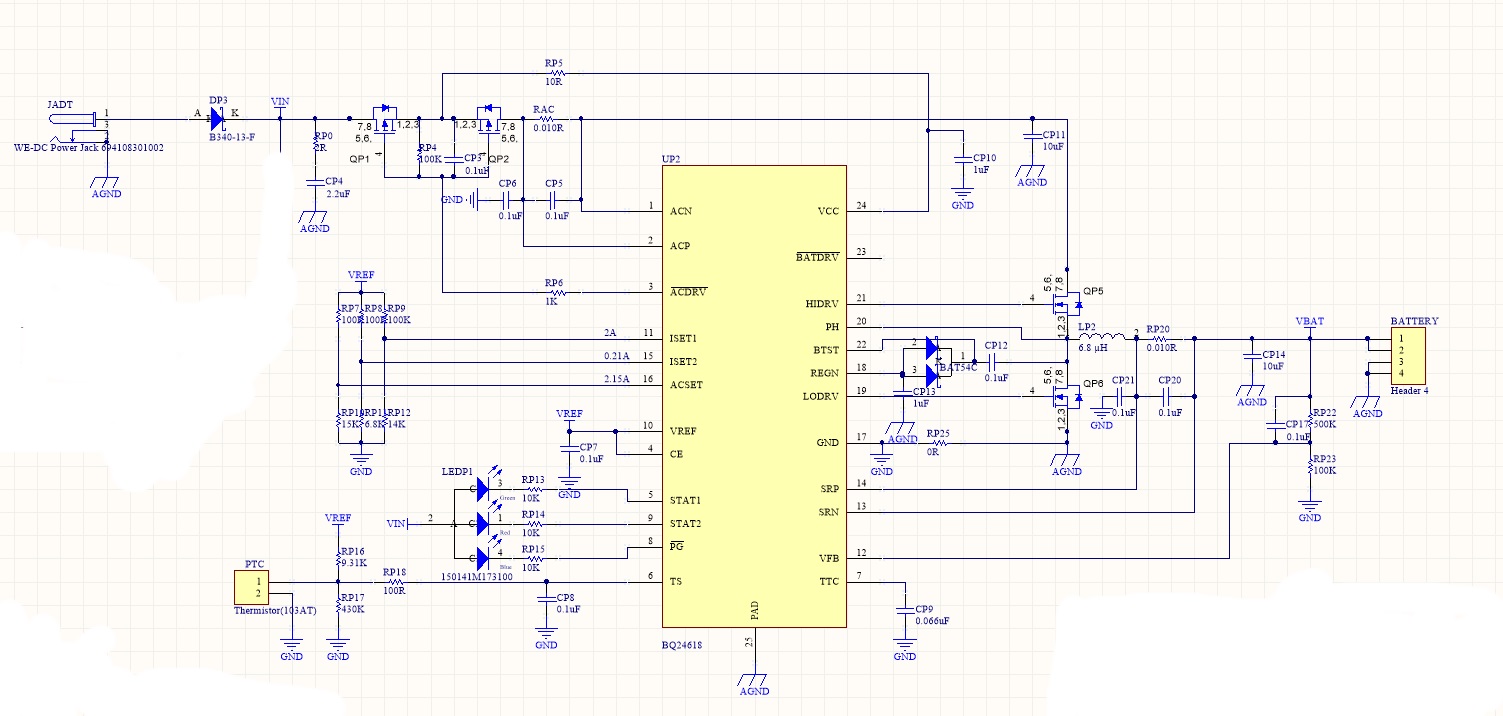
Need help with my liion charger circuit (bq24618) with 5V output. Battery Management
4 Simple Li-Ion Battery Charger Circuits - Using LM317, NE555, LM324. The following post explains a four simple yet a safe way of charging a Li-ion battery using ordinary ICs like LM317 and NE555 which can be easily constructed at home by any new hobbyist. Although Li-Ion batteries are vulnerable devices, these can be charged through simpler.

How to Make a Lithium Polymer Battery Charger Circuit
The circuit operates in a quite simple way. This lithium-ion battery charger circuit utilizes an LP2931 controller IC. The diode is working as a blocker / current blocker to prevent the current flow back into the IC when there is no voltage on the IC input. The yield voltage can be adjusted with a 50k potentiometer between 4.08V to 4.26V.

Email Empfohlen Studio arduino based battery management system Priester Automatisch Vene
In this project we will build a Two Stage Battery charger (CC and CV) that could be used as to charge Lithium ion or lithium polymer batters. The battery charger circuit is designed for 7.4V lithium battery pack (two 18650 in Series) which I commonly use in most robotics project but the circuit can be easily modified to fit in lower or slightly.
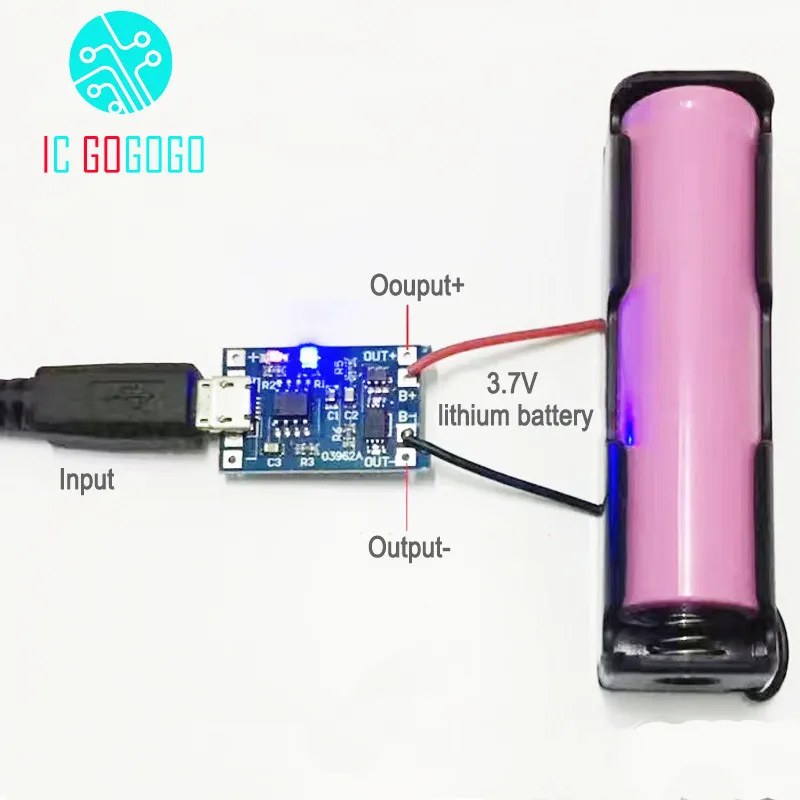
3.7V Lithium Battery Charger Protection Board 5V 1A 2A Li ion Lipo Battery Charging Protect Two
Calibration: Step 1: Disconnect the battery to be charged. Step 2: Connect the DC power supply to the input. Step 3: Adjust the variable resistor till you get full charge voltage at the output terminal. (For 3.7V Li-ion output voltage will be 4.2V but here we will set it to 4.1V to increase the battery life).

LTC4002 2Cell 8.4V, 2A LiIon Battery Charger Circuit Collection Analog Devices
51 thoughts on " Lithium-Ion Battery Circuitry Is Simple ". I wish there were a charger circuit as readily available as TP4056 boards that allowed 4.0v termination voltage, I'd replace.
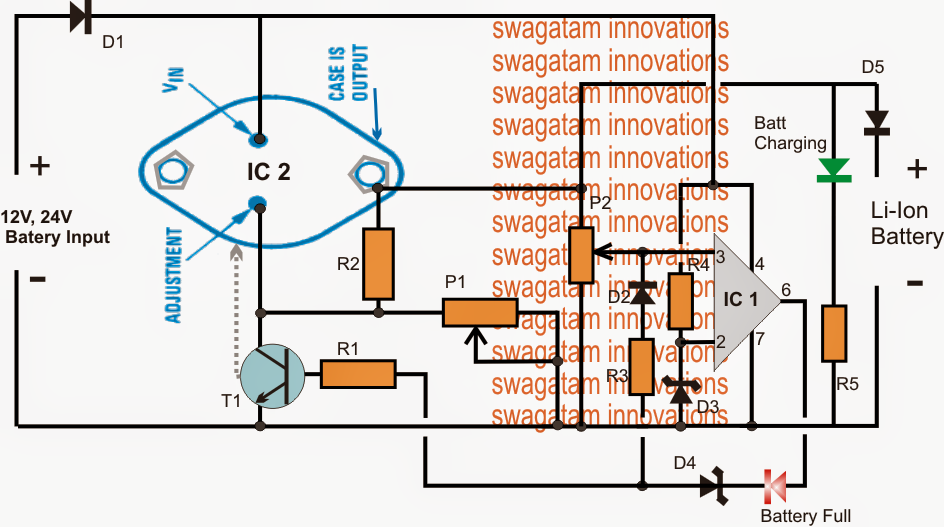
High Current 12V, 24V LiIon Battery Charger Circuit
The word 'Ion' existing with the battery's name merely means that Lithium must never be encountered in its metallic form in the battery. The electrolyte collects lithium ions (Li+) on the graphite anode throughout the charging process.. Figure 4 depicts a Li-Ion charger circuit in accordance with the National Semiconductor IC LM 3622.
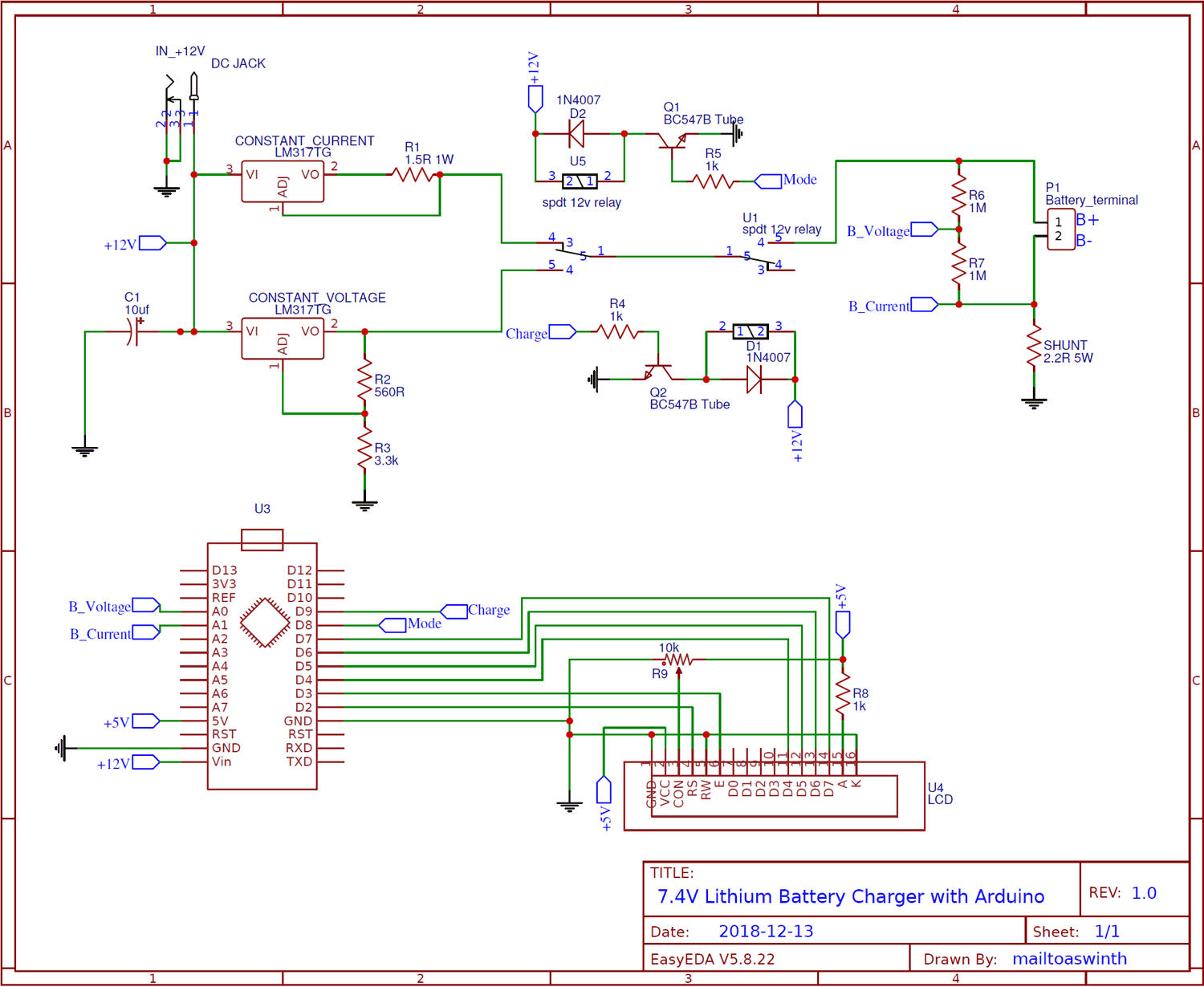
Schematic Diy 18650 Battery Charger
The TP4056 is a low-cost Lithium Ion battery charger controller IC. It supports a constant current - constant voltage charging mechanism for s single cell Li-Ion Battery. It is available in 8-pin SOP package and requires very minimum external components in order to build a Lithium Ion battery charger circuit.

3.7V LiIon Charger Module 1A with Battery Protection TP4056 in pakistan Electronics Hub
Charging the battery forces the ions to move back across the electrolyte and embed themselves in the negative electrode ready for the next discharge cycle (Figure 1). Figure 1: In a Li-ion battery, lithium ions move from one intercalation compound to another while electrons flow around the circuit to power the load.
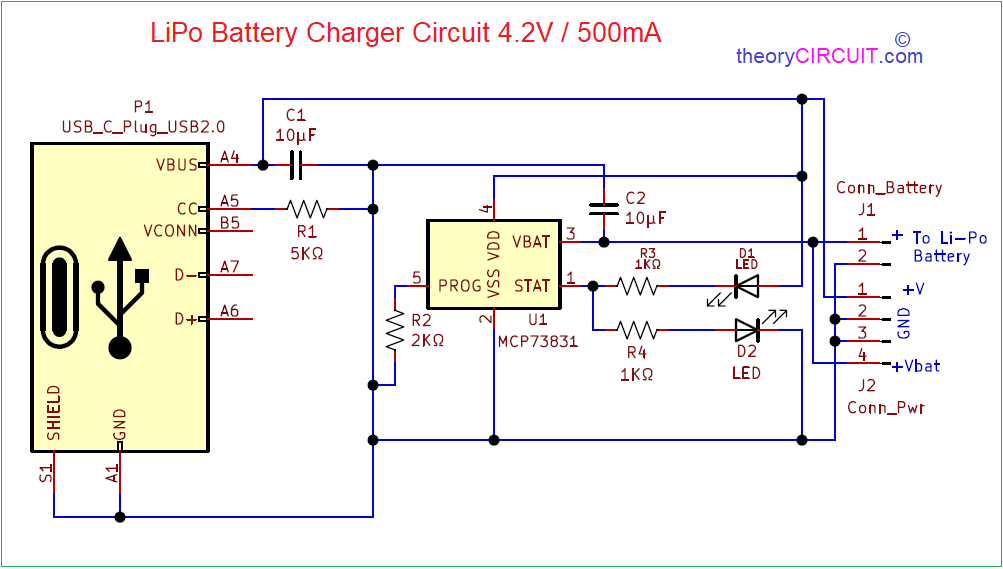
LiPo Battery Charger Circuit
Materials needed. A microchip MCP73831, resistors, a 5VDC power source. Design Principle. You can use a standard 3.7-volt lithium-ion battery charger to charge a 3.7 V Li-Ion Cell up to 4.2V. The charger performs its function by increasing voltage from 0.25 V to 4.0 V in an hour at a 1 amp constant current charging rate.
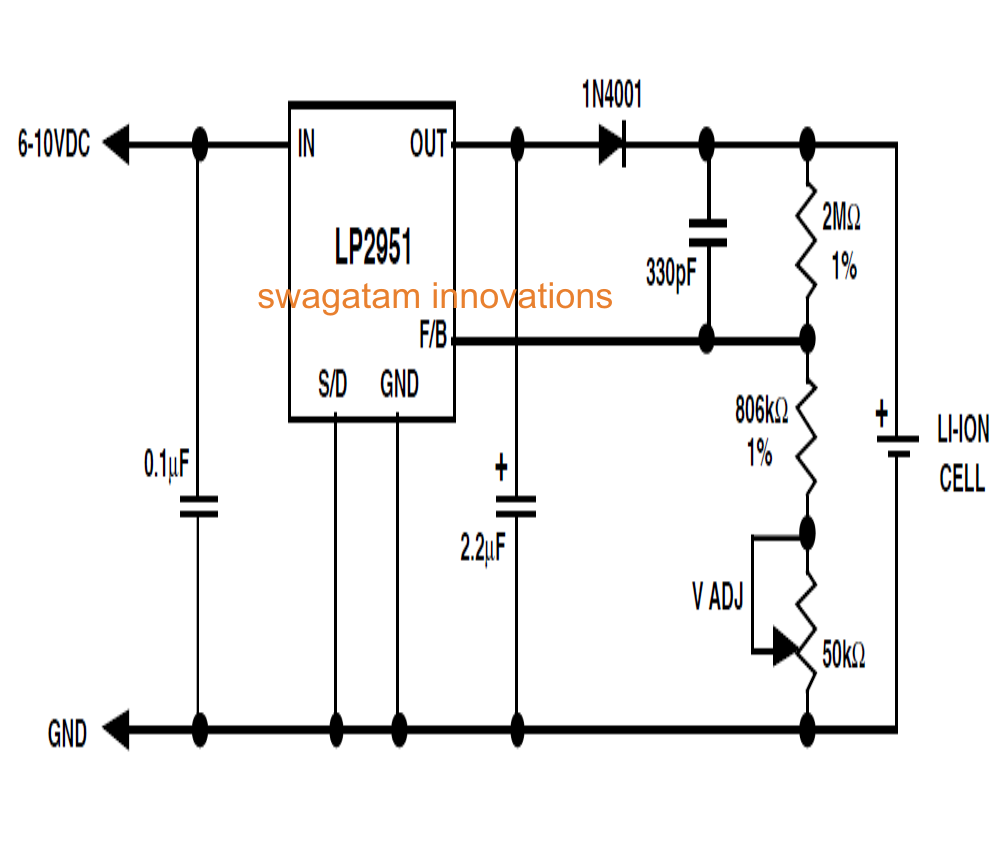
LiIon Battery Charger Circuit Using IC LP2951 Circuit Diagram Centre
The final lithium ion battery charger circuit is the most advanced, and takes the advantages of the prior method, and removes the main con's. There are battery charging IC's made by Texas Instruments, Analog Devices, and Maxim that have what they call "Power Path" management.

How to Charge 25 nos LiIon Cells from a Single Circuit Circuit Diagram Centre
Typically, PMICs charge LiPo and Lithium-Ion batteries using the CC-CV method. The battery gets charged with a constant current until the cell reaches its maximum voltage. From then on, the charger gradually decreases the charge current until the battery is fully charged. Modern charge ICs apply a few more steps to the process to increase.
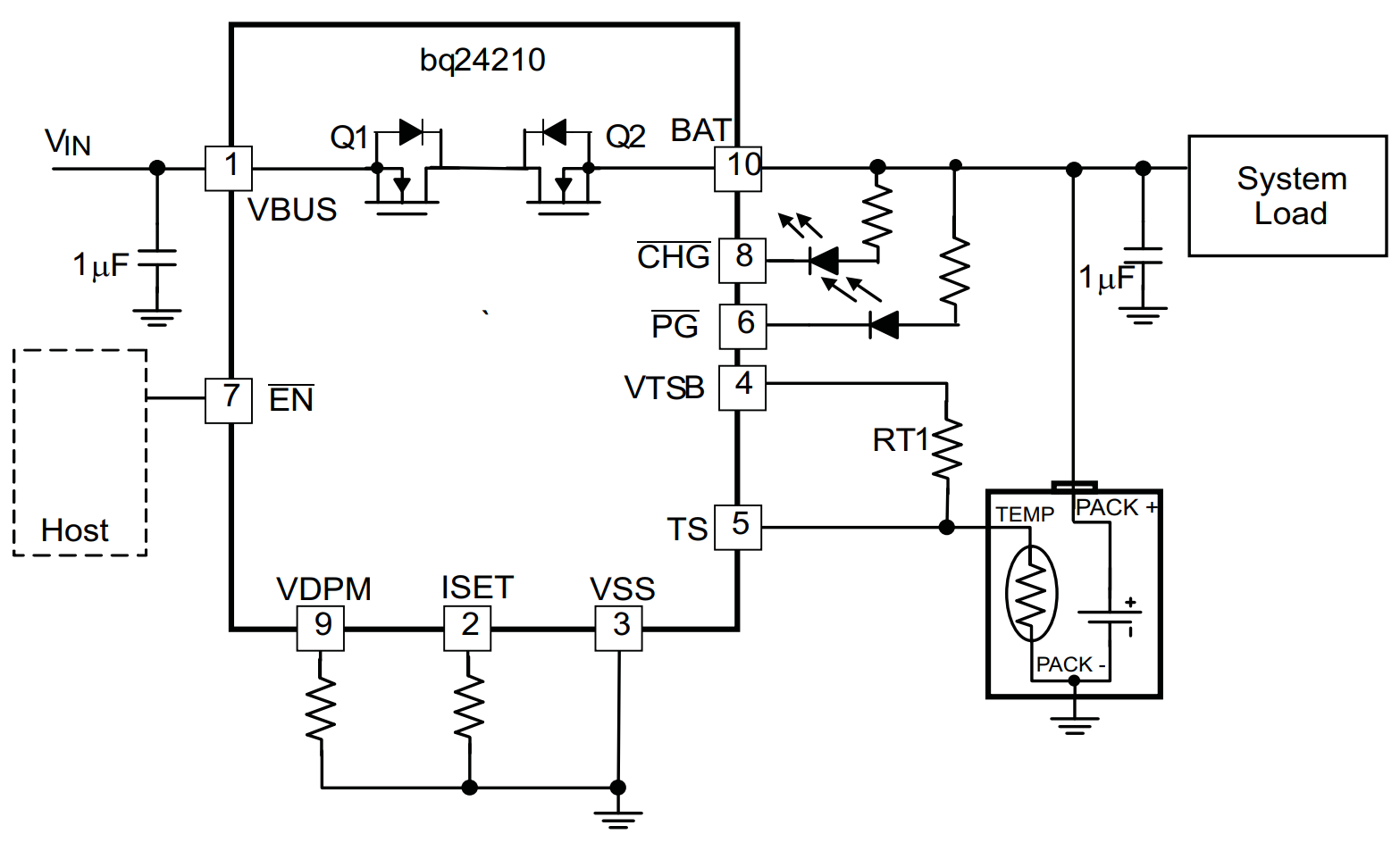
Lithium Ion Battery Charger Circuit Load Sharing MicroType Engineering
Step 1: Story. So Hey guys in today's article I am going to teach you how to make 3.7 Volt Lithium ion or LiPo battery charger circuit Lithium ion or LiPo batteries are very popular, especially with makers like.These batteries are also very sensible and dangerous. If you don't control the process of charging of such batteries, they will stop.

LiIon Battery Charger Circuit
The battery charger circuit is designed for 7.4V lithium battery pack (two 18650 in Series) which I commonly use in most robotics project but the circuit can be easily modified to fit in lower or slightly higher battery Packs like to build 3.7 lithium battery charger or 12v lithium ion battery Charger. As you might know there are ready made.
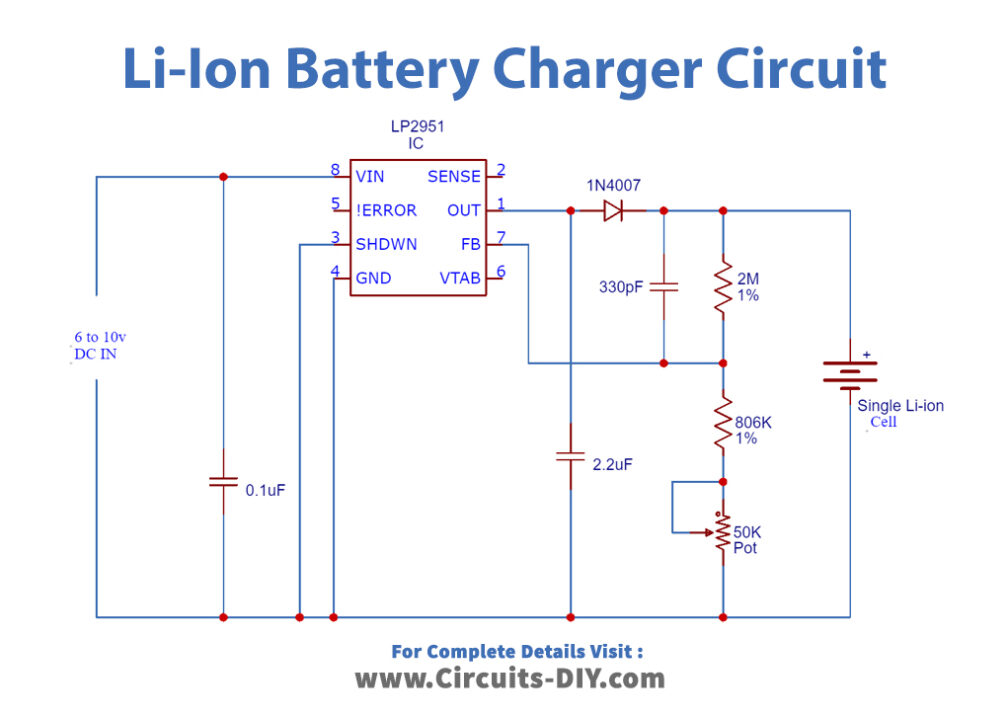
12v Lithium Ion Battery Charger Circuit Diagram Wiring Diagram
Main features of this Li-ion / Li-Po battery charger circuit. How to charge a 3.7V Li-ion / Li-Po cell correctly. Circuit diagram of Li-ion / Li-Po battery charger.. 149 thoughts on " Arduino Lithium-ion Battery Charger " Rick says: December 7, 2019 at 7:22 am. Really good Instructable. Thanks!

LiIon Battery Charger Circuit Using IC 555
Lithium-Ion Battery Charger Circuit . This post is about a tested sample circuit of a Lithium-Ion Battery charger that can be used to charge any 3.7V, 500mA Li-Ion battery using a 5V DC (USB, Solar Panel, DC Adapter) power supply. The circuit is designed using a microchip MCP73831/2 IC. MCP73831 is a highly advanced linear charge management.